Are you planning on making a car purchase for the first time? Chances are you don’t want to get ripped off by a car dealership. Unfortunately, many car dealerships use underhanded tactics to do just that.
With that being said, have you asked yourself, what should I watch out for with car dealers when financing a car for the first time?
First-time car buyers tend to be inexperienced, and therefore, are easy targets for car dealers looking to take advantage. But that doesn’t have to be your experience. We’ll help you avoid these 19 car dealer tricks to help you save money on your car deal.
After reading this article, we hope that we can help turn you from an inexperienced car buyer into a savvy car shopper. So, with a little bit of research and preparation, you can have an interesting car buying process instead of the opposite. Let’s dive in!
Here are 20 shady dealer tricks you should be aware of when financing a car:
The bait and switch

The “bait and switch” is when a dealership advertises one price for a car, but then switches the offer to an inferior vehicle when you visit the dealership. This trick is used to get potential customers into the store with the hopes that they will fall in love with a more expensive car on the lot.
If you’re not careful, you might end up leaving the dealership with a car you don’t even want.
To avoid this car dealership trick, be sure to do your research ahead of time. Look up the specific make and model of the car you’re interested in and get an idea of what it should cost. That way, you’ll know if the car dealership is trying to switch you to a more expensive car.
The “low ball” offer

When you’re negotiating with a car dealer, they may start with a very low offer to leave room for negotiation. This is known as the “lowball” offer, and it’s a common tactic used by auto dealers to trick their customers to pay more than they intended.
If you’re not careful, you could end up paying more for the car than it’s worth. To avoid this, be sure to do your research and know the fair market value or the manufacturer’s suggested retail price (MSRP) of the car before you start negotiating. That way, you’ll know if the dealer is trying to lowball you.
The “yo-yo scam”

The “yo-yo” is a financing trick where the dealer tells you that you’ve been approved for an auto loan, but then calls back later and says that you need to reapply with a different dealership financing. This is done in hopes that you will accept a higher interest rate.
To avoid this car salesman tactic, be sure to get pre-approved for a new car loan before you visit the car dealership. That way, you’ll know exactly what interest rate you qualify for and won’t be taken advantage of by the dealer.
The “trade-in trap”
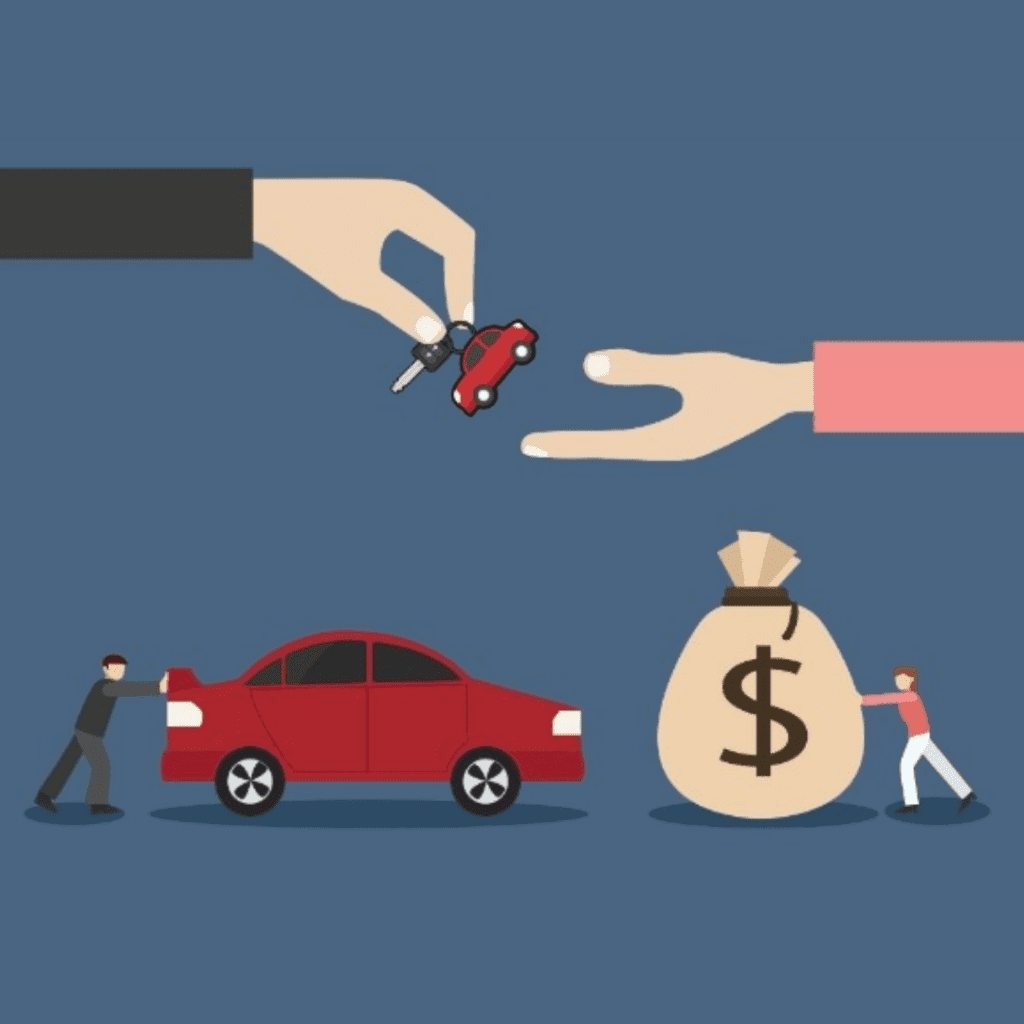
Many dealerships will try to lowball you on your car’s trade-in value to make more money off of you. This is known as the “trade-in trap.” The trade-in trap works like this:
The dealer will give you a low offer on your trade-in car, which lowers the amount of money you have to finance. Then, the dealer will try to make up for the low offer by increasing the price of the car you’re buying.
To avoid this, be sure to get an estimate of your actual vehicle price before you visit the dealership. That way, you’ll know if the dealer is trying to lowball you on your trade-in.
The “dealer added options or add-ons trap”
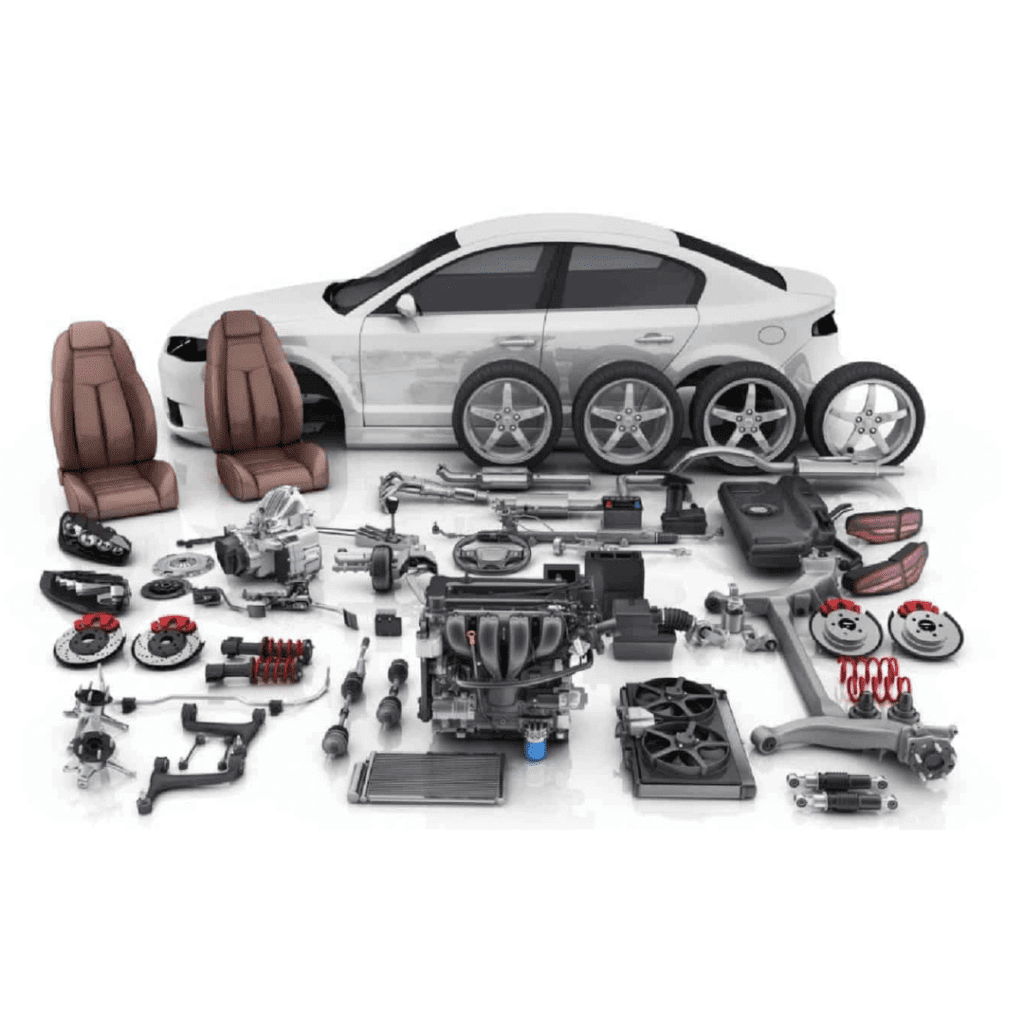
Sneaky car dealerships will try to sell you add-ons for your new vehicle. Some of these are extended warranties, paint protection, and guaranteed asset protection or gap insurance. While these add-ons can be beneficial in some cases, they are often overpriced and not worth the money.
Do your research and know which add-ons are actually worth the money on a specific vehicle and take only what you need. That way, you won’t be taken advantage of by the dealer.
Moreover, gap insurance is only worth considering if you’re financing your car, and even then it’s often included in new car loans.
The “showroom tax”
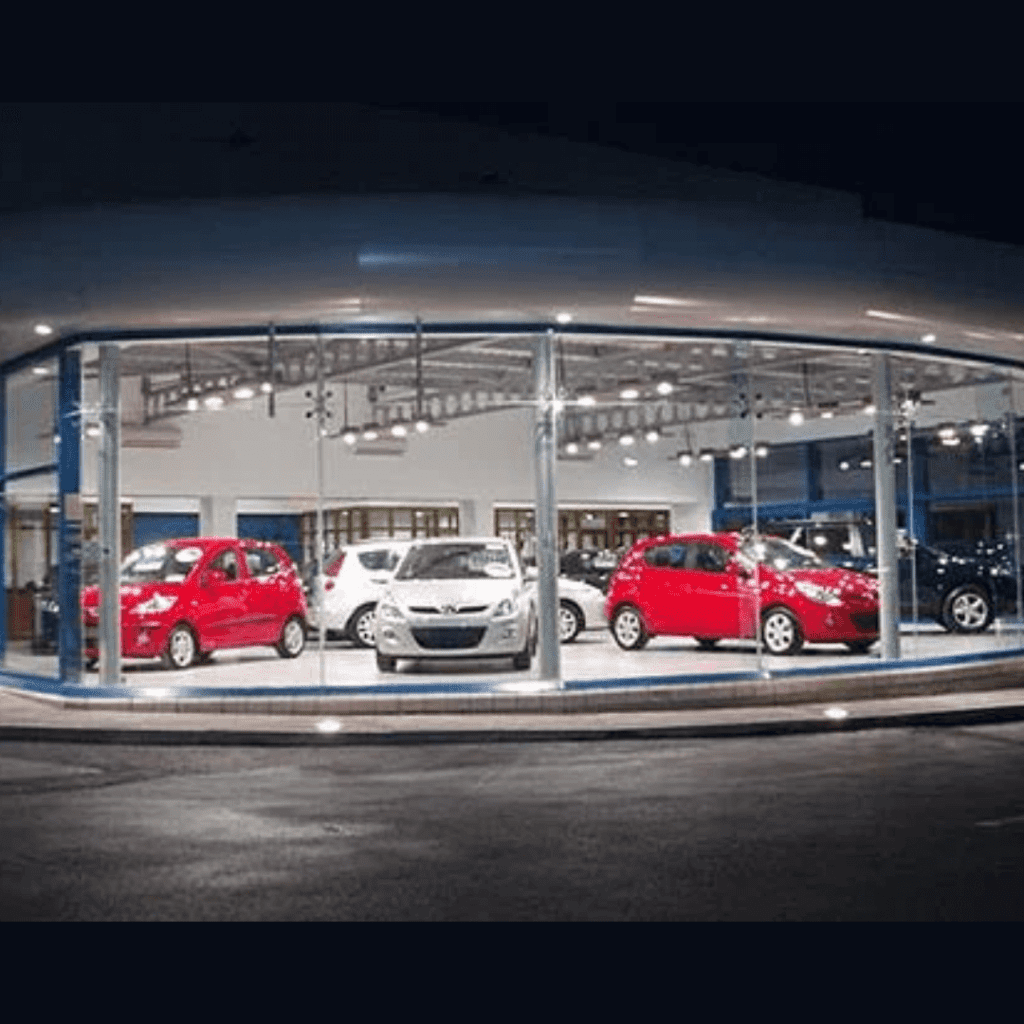
The “showroom tax” is a term used to describe the additional fees that dealerships will charge for things like vehicle registration fees, dealer prep fees, and destination charges. These fees can add up quickly and sometimes get tacked on top of your monthly payment. So, be sure to ask about them upfront.
Always ask about the additional fees before you agree to purchase a specific car. That way, you can factor them into your budget and decide if the car loan is a good deal or not.
The “pressure cooker”

The “pressure cooker” is when a dealership pushes you to decide by using high-pressure tactics, such as telling you that the offer won’t be available for long or that another customer is interested in the same car.
If you feel like you’re being pressured into a decision, take a step back and tell them you need time to think about it. If they’re not willing to give you time to make a decision, then they’re probably not looking out for your best interests.
Many dealerships will charge a “showroom tax” or “marketing fee” in addition to the price of the new car. This is an extra fee that is often tacked on top of the purchase price of the vehicle without the customer’s knowledge.
Make sure you’re clear about the additional fees before you sign the contract. That way, you won’t be surprised by them later on. Remember, a great price on a car doesn’t mean much if you’re being charged an extra few thousand dollars in fees.
The small print smokescreen

When you’re signing the purchase contract, the dealer may try to distract you from the important details by pointing out other parts of the contract. This is known as the “small print smokescreen.”
Shady dealers will try to confuse car buyers with the fine print in hopes that they will miss the important details, such as the manufacturer’s suggested retail price of the car or the interest rate of the auto loan.
Be sure to read the entire purchase contract carefully before you sign it. Ask questions about anything you don’t understand, and make sure you’re clear about all the terms and conditions before you agree to them.
The best price of a new car should be the one that’s advertised. On the other hand, the price of a used car should be the one that’s on the window sticker.
If you’re financing a car, be sure to read over the financing offers carefully before you sign it. Shady dealership financing may try to hide the true interest rate in the fine print of the contract.
Be sure to ask about all the fees associated with the loan, such as the origination fee, and make sure you understand all the terms and conditions before you agree to them.
Monthly payments-based negotiation
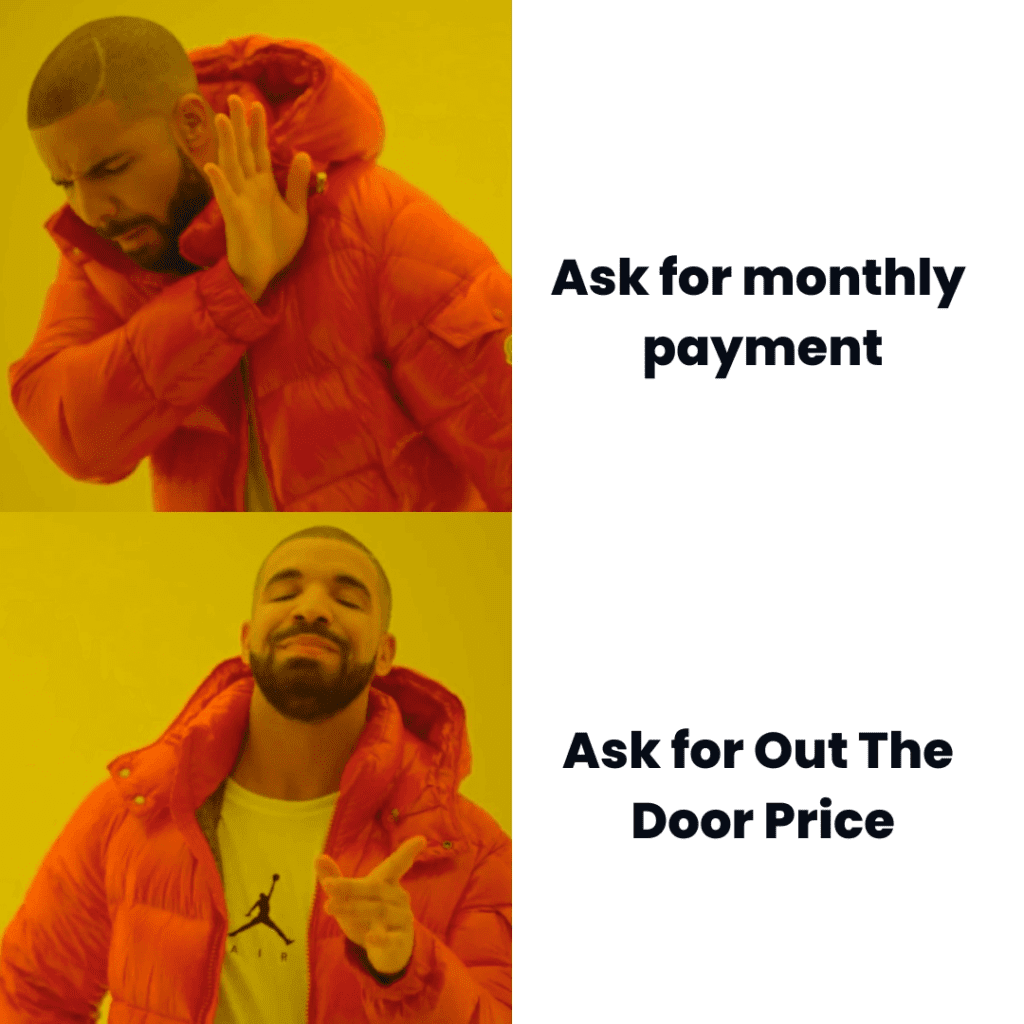
Most dealers will try to negotiate the price of the car based on your monthly payment instead of the total price of the car. This is because they know that most customers tend to be more concerned about their monthly payments than the total price of the car.
As a savvy car buyer, you should always negotiate based on the actual price of the car, not the monthly payments. That way, you can be sure you’re getting the best deal possible instead of some packed monthly payments set up by the dealer.
Marking up the interest rates

Many dealerships will mark up the interest on loans to get extra money off of you. This is known as “marking up” the interest rate.
To avoid this, always get pre-approved for a loan before you visit the dealership. That way, you’ll know exactly what interest you qualify for and you won’t be taken advantage of by an unscrupulous dealer.
Marking up the Money Factor

Often abbreviated as MF in the invoice, the money factor is one more figure used by car dealers to inflate their bottom line. The money factor is very similar to the interest rate, but it’s stated as a decimal number instead of a percentage.
For example, a money factor of 0.0015 is equivalent to an interest rate of 3%.
To avoid being taken advantage of, always ask the dealer for the interest rate instead of the money factor. That way, you’ll know exactly how much pay interest on your loan.
By asking about the details, you can save money and avoid getting taken for a ride by a shady car dealer.
Extended Warranties
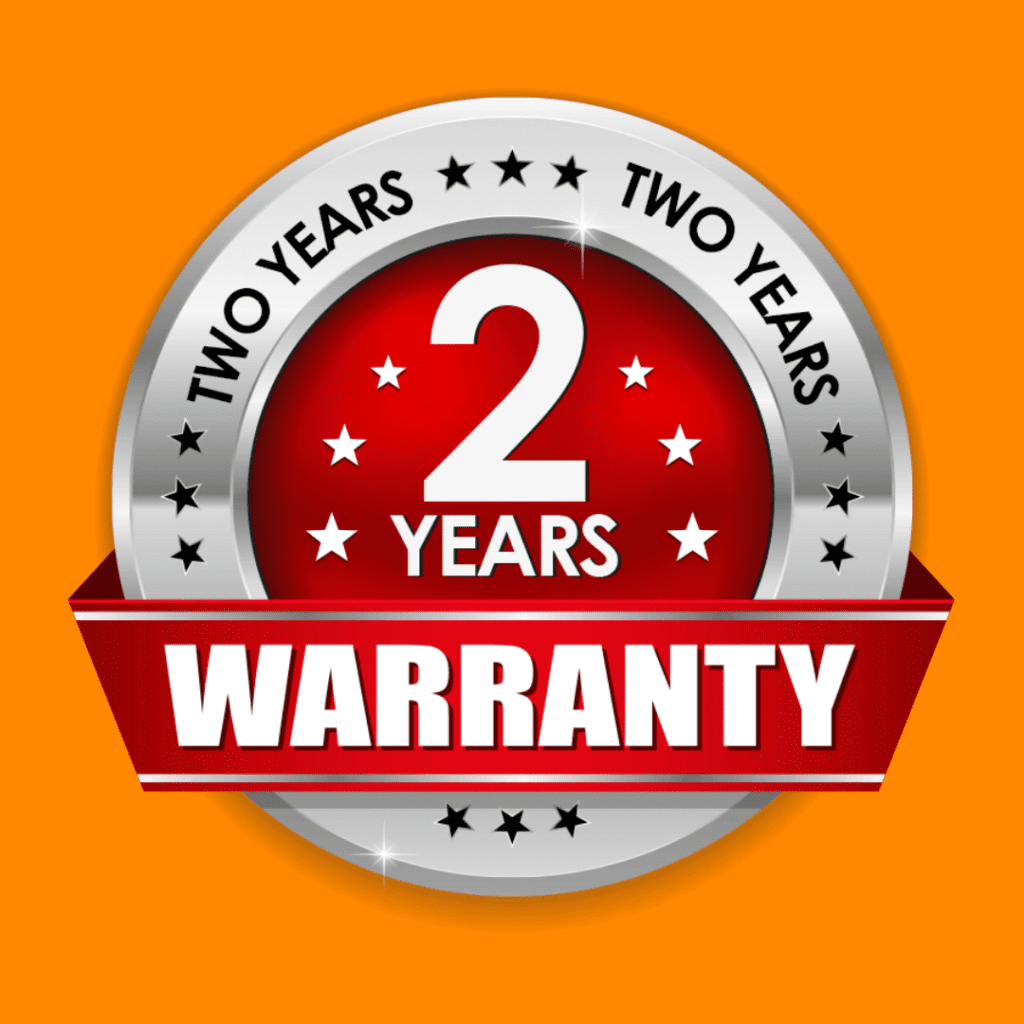
Most new cars come with a factory warranty that covers the car for a certain period or mileage, whichever comes first. However, many dealerships will try to sell you an extended warranty, which is an additional warranty that provides coverage beyond the factory warranty.
While extended warranties can be a good idea for some people, they’re not right for everyone. Before you decide to purchase an extended warranty, be sure to do your research and understand exactly what it covers. You may find that the coverage isn’t worth the cost.
VIN Etching
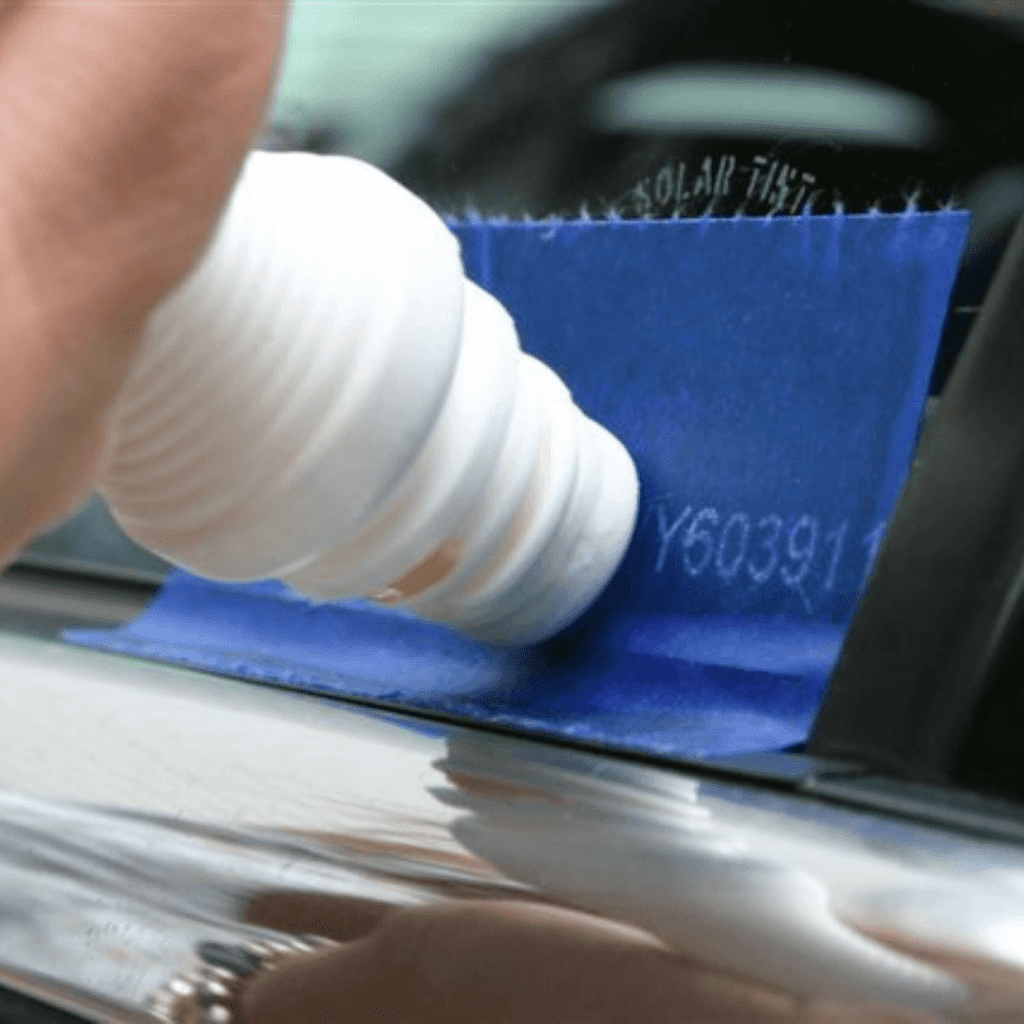
VIN etching is a process where the vehicle identification number (VIN) is etched into the windows of the car. This is supposed to deter thieves, as it makes it more difficult to sell the parts of a stolen car.
However, many experts believe that VIN etching does not deter thieves and may make your car more likely to be stolen. Additionally, VIN etching can often be done for free by your insurance company.
As such, you may want to skip the VIN etching offered by the dealership otherwise, this can add up to your monthly payment.
Surface Protection Offers
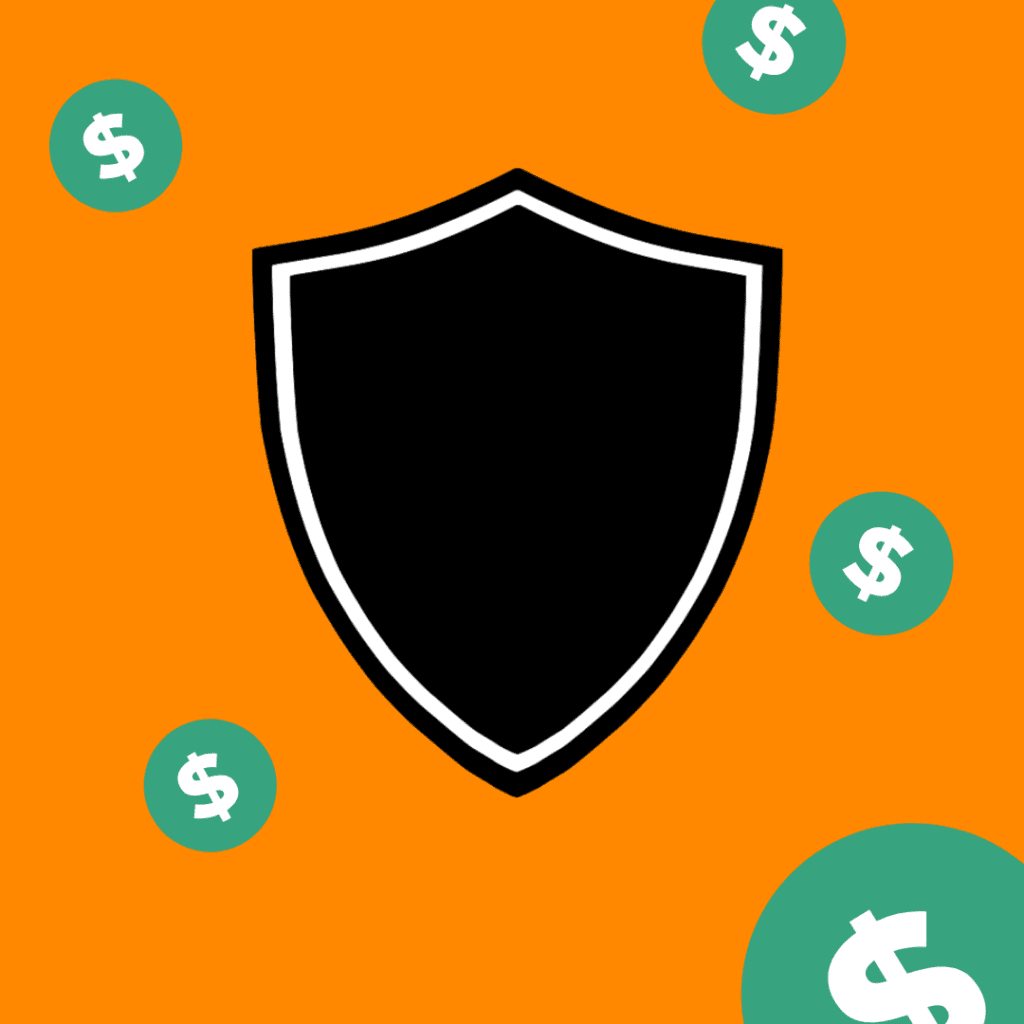
Many dealerships will try to sell you a surface protection plan, which is supposed to protect your car’s paint and interior from wear and tear. This includes fabric protection, paint sealant, and other similar products.
Make sure you understand exactly what a surface protection plan is. In many cases, the coverage offered by these plans is not worth the cost if you’re buying a used car. Additionally, many of the things covered by a surface protection plan, such as paintless dent repair, are already covered by your car insurance.
Spot Delivery

Spot delivery is when a dealership lets you take the car home before the financing on the car is complete. This can happen for both a new or used car. However, this is very rare for a new car.
While this may sound like a good deal, it’s a bad idea. If something goes wrong with the spot financing, the dealership can demand that you return the car, even if you’ve already made payments on it.
Never take possession of a vehicle whether it’s a new or used car until the financing is complete. Cars tend to depreciate quickly, so you don’t want to be stuck making payments on a car that you can’t even drive.
The four-square tactic

The four-square is a common sales tactic used by car dealers. The dealer will have you write down your offer on four different pieces of paper, each for a different factor: trade-in value, monthly payment, interest rate, and total price of one car. This can be confusing for buyers, as it’s easy to lose track of what you’re agreeing to.
If a dealer uses the four-square tactic, be sure to read over all four pieces of paper carefully before you sign anything. Make sure you understand exactly what you’re agreeing to and that the numbers add up correctly in the loan terms.
Mode of payment
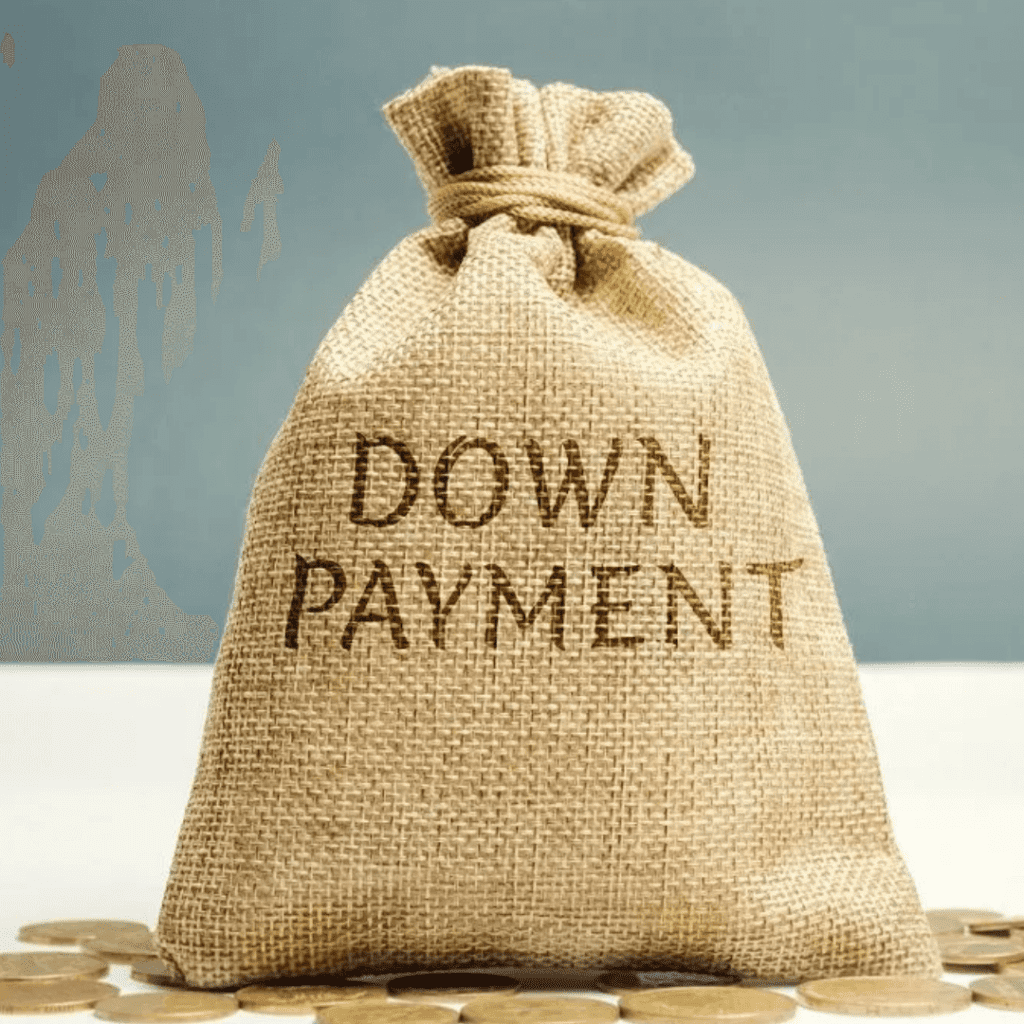
If you’re planning to finance your car, the dealer may try to pressure you into making a large down payment. While it’s always a good idea to make a sizable down payment, you should never put more money down than you can afford.
Additionally, be aware that the dealer may try to steer you towards using their in-house financing. While there’s nothing wrong with using in-house financing, you may be able to get a better deal elsewhere. Be sure to shop around for financing before you agree to any car loans.
What does the bank offer?

Do you have an existing loan? Before you go to the dealership, get pre-approved for financing from a bank or credit union. Auto loans can hurt your finances if you’re not careful.
The interest rate on auto loans is one of the most important factors to consider when financing a car. The lower the interest rate, the less you’ll have to pay in the long run.
Keep in mind that the dealership may try to beat the interest rate that you’ve been offered by the bank. If the dealership does offer a lower interest rate, be sure to get it in writing before you agree to anything.
When you’re at the dealership, the salesperson may try to tell you that the financing offer from the bank is no good. Some lender-offered advice is only aimed at getting you to refinance through the dealership at a higher interest rate.
You’re under no obligation to take their advice, so don’t let them pressure you into anything. They may say that they can get you a better deal through their own financing.
Don’t believe them as this can lead to a higher price on the car. Get the offer from the bank in writing and show it to the salesperson. If they can’t match it, then you know you’re getting a good deal.
Many dealerships will try to sell you something that isn’t as good as the one you already have. If this happens, be sure to hold firm and don’t let them pressure you into a new deal.
Too-good-be-true offers
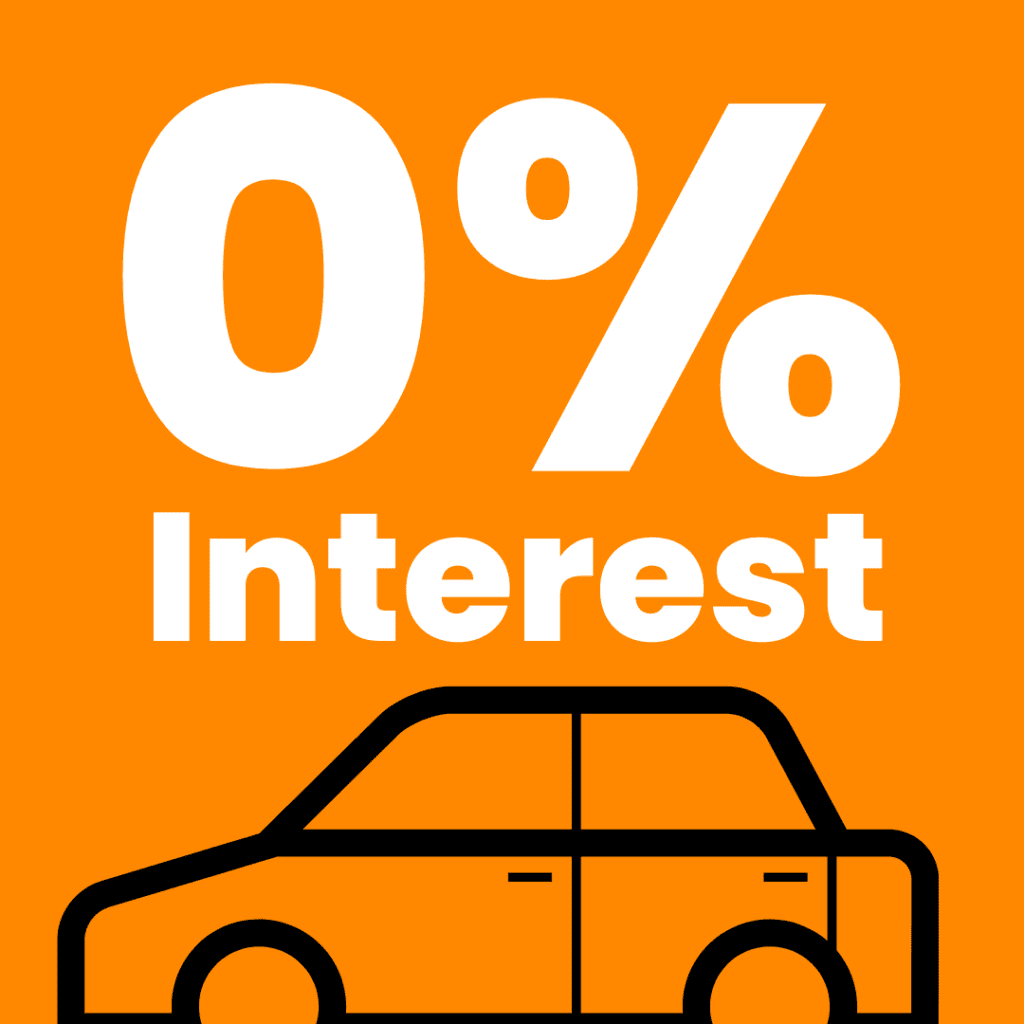
When you’re car shopping, you may come across an offer from an outside lender that seems too good to be true. For example, the dealer may say that they can get you a 0% interest loan.
In most cases, these offers are too good to be true. The dealer may try to make up for it by offering you a higher purchase price, a longer loan term of six or seven years, or a higher interest rate on a new car.
Most buyers tend to fall for this scheme because they’re excited about the 0% interest loan. However, it’s important to remember that a longer loan term means you’ll be paying more in interest over time.
If you’re presented with an offer that seems too good to be true, make sure to read the fine print carefully before you agree to anything. Your decision-making should be guided by your budget, not by an offer that may not even be real.
The dealer paid off status

When you’re car shopping, you may come across a dealer who’s willing to pay off your old car loan. This can be a tempting offer, but you should always be wary of it.
In most cases, the dealer will roll the balance of your old loan into the new loan. This means that you’ll end up paying interest on the entire loan amount, even though you may have already paid off part of the loan.
Additionally, the dealer may try to pressure you into taking out a longer loan term to keep the monthly payments low. This is a bad idea because it means you’ll be paying more in interest over time.
In Conclusion
Car dealerships are businesses, and their goal is to make money. As such, they will often try to take advantage of car buyers with less knowledge or experience. However, if you’re aware of these common dealer tricks, you can avoid them and get a good deal on your next car.
The fool-proof way to avoid being taken advantage of is to educate yourself on the car-buying process and know what to expect. You can also seek expert advice. If you’re aware of the common shady tactics that dealerships use, you’ll be less likely to fall for them.
Do your research and know the upfront costs before you visit the dealership, and don’t be afraid to walk away if you feel like you’re being taken advantage of by car dealers. There are plenty of other dealerships out there that will be more than happy to give you a fair deal.
Do you want to make sure to avoid all 19 of these shady dealership tactics? Tell us what car you are looking for and we will guide you so that, not only do you avoid the shady tactics, but you also get the best possible deal at the current time of the market.
Do you find this article helpful? Leave us your comment below.
